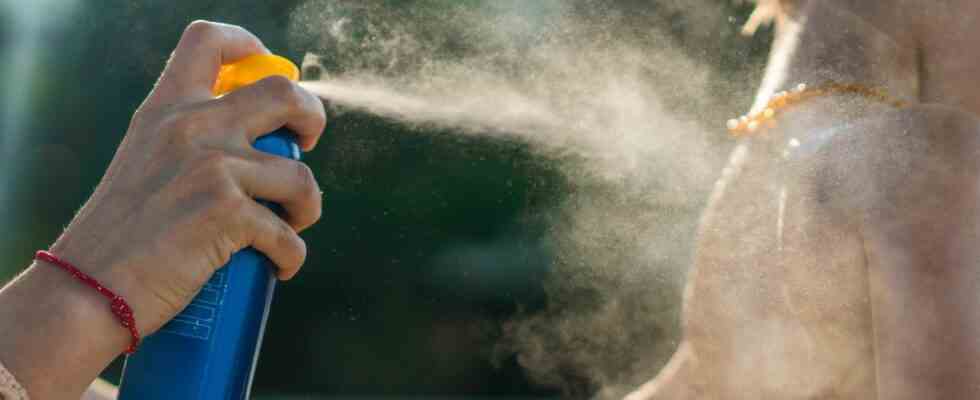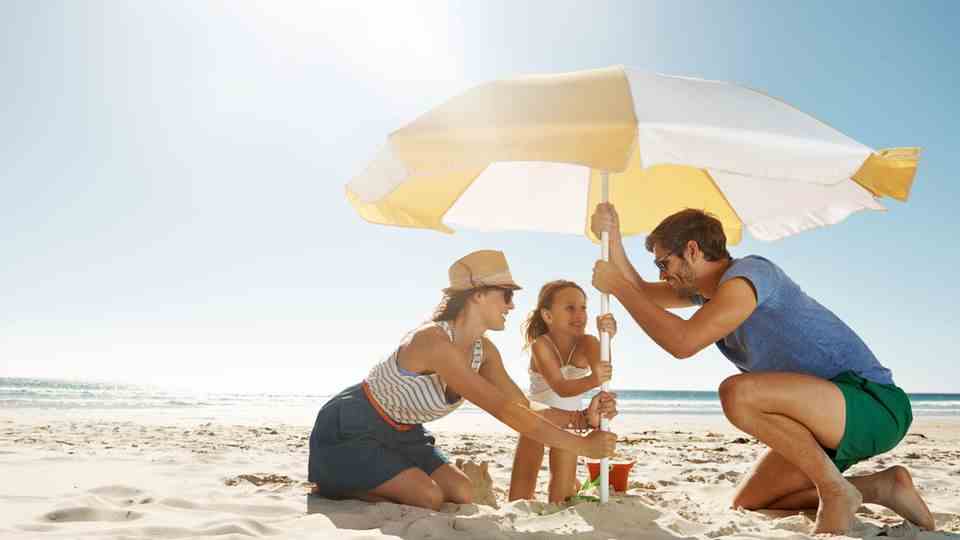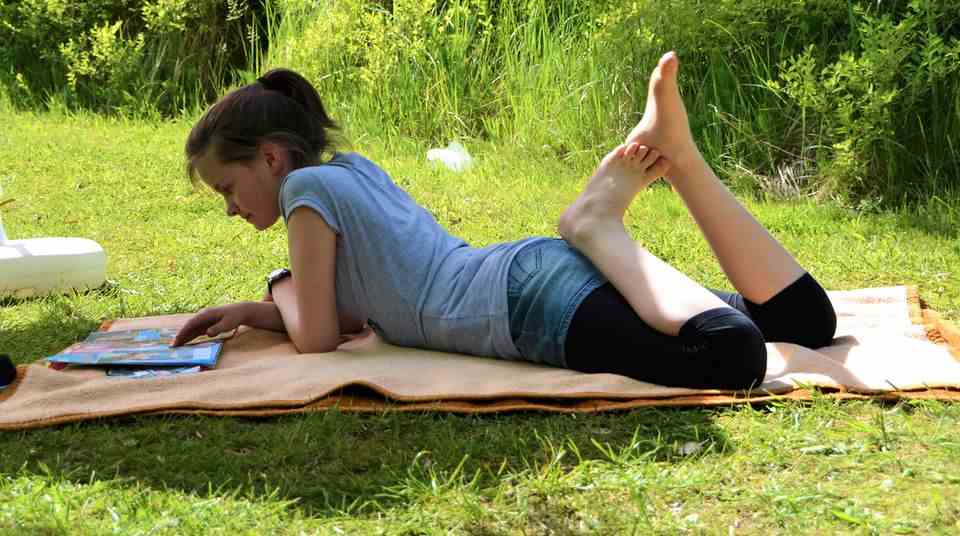Natural cosmetics fail
Sunscreens in the product test: cheap products convince, expensive brands smear
Better safe than sorry: but which sunscreen really protects?
© skynesher / Getty Images
When the sun burns down from the sky, the skin is in danger. Sun creams, lotions and sprays are designed to protect. But are they doing what they promised? Stiftung Warentest tested sunscreens and found four UV protection failures.
Summer is when pale office boys turn into tanned bon vivants and the freckles reclaim their noses. It’s also summer when the crayfish become two-legged friends, because once again optimistically the sunscreen has been dispensed with. Whether as a cream, lotion or spray – sunscreen is essential for skin health, after all it protects against damage from UV light. Or should protect. Stiftung Warentest took a closer look at 20 sunscreens and found weaknesses in expensive branded products.
Sunscreens that promise a high protection factor of 30, 50 and 50+ were tested. The good news: the majority of the products in the test were convincing. 14 protect at least well, 9 are very good according to testers. Natural cosmetics, of all things, provide a negative surprise. Three of the four tested remedies are so bad that they are penalized with a grade of 5.0. They provide less protection than promised on the packaging and, according to the test results, in some cases significantly undercut the specified protection factor. And: To top it all off, the manufacturers, including Das Boep and Lavera, charge horrendous prices of up to 19 euros per 100 milliliters for the poor performance.
Cheap sunscreens convince
A cheek, especially since many cheap sunscreens provide more reliable protection and only cost a fraction. Above all, the Lidl sun milk “Cien Sun”. This is already available for 1.12 euros per 100 milliliters and is one of the best in the test. Like other inexpensive supermarket products, it is “very good”. Warentest chose the “Garnier Ambre Solaire Hydra 24h” sunscreen as the test winner, which is a bit more expensive but is still one of the cheapest in the test (3.50 euros/100 milliliters).
Two products also attracted attention due to critical substances. The testers found a comparatively large amount of benzophenone in one spray. This is suspected of increasing the risk of developing cancer. However, the data is still poor. And the UV filter homosalate, which may influence the endocrine system, has been found in Eucerin’s expensive gel cream. Although the limit values are met, Warentest only gives this product a “satisfactory” rating.
You can find the complete sunscreen test for a fee test.de



